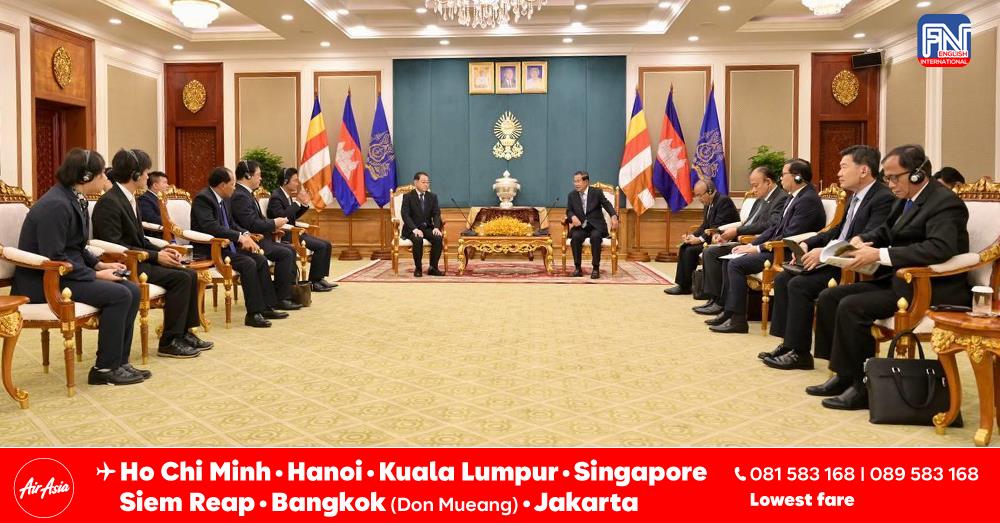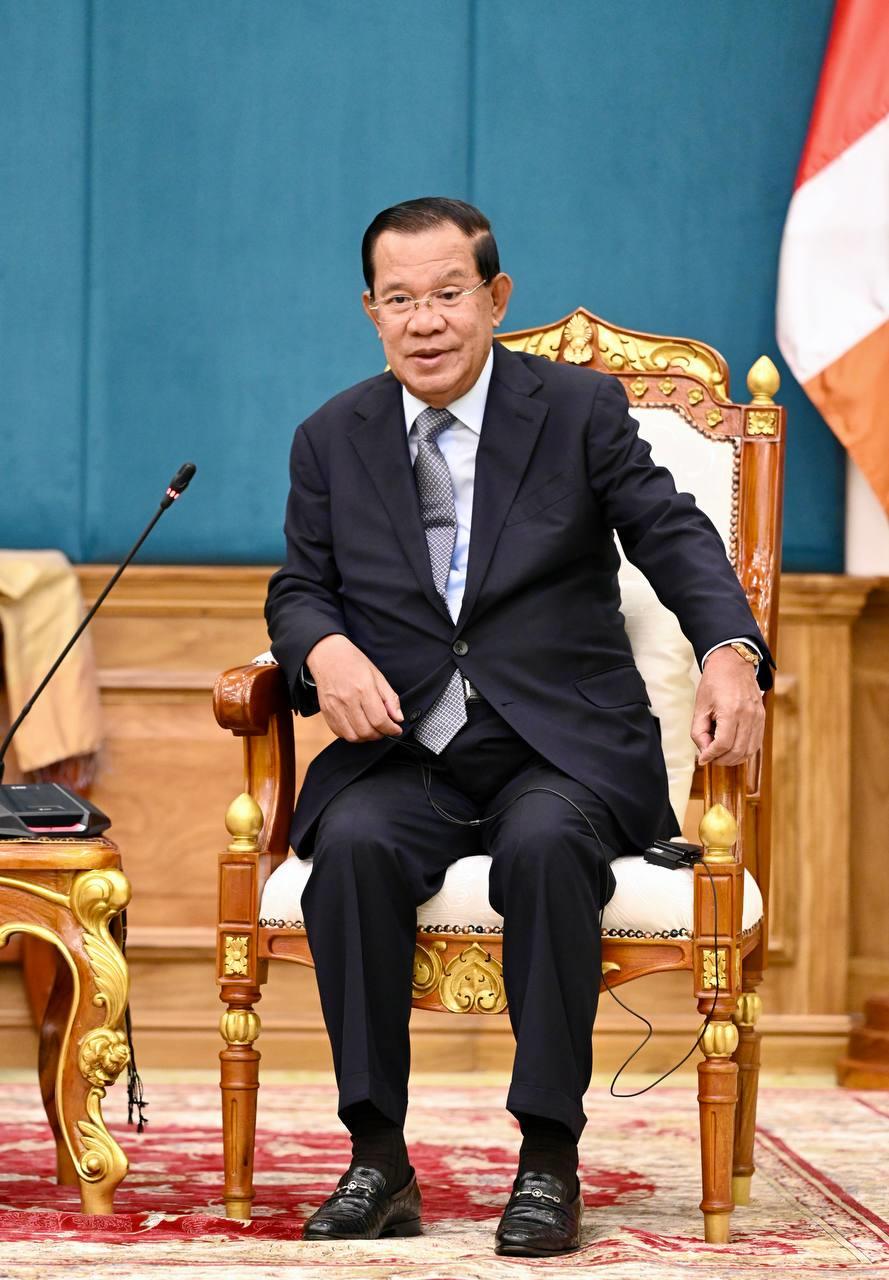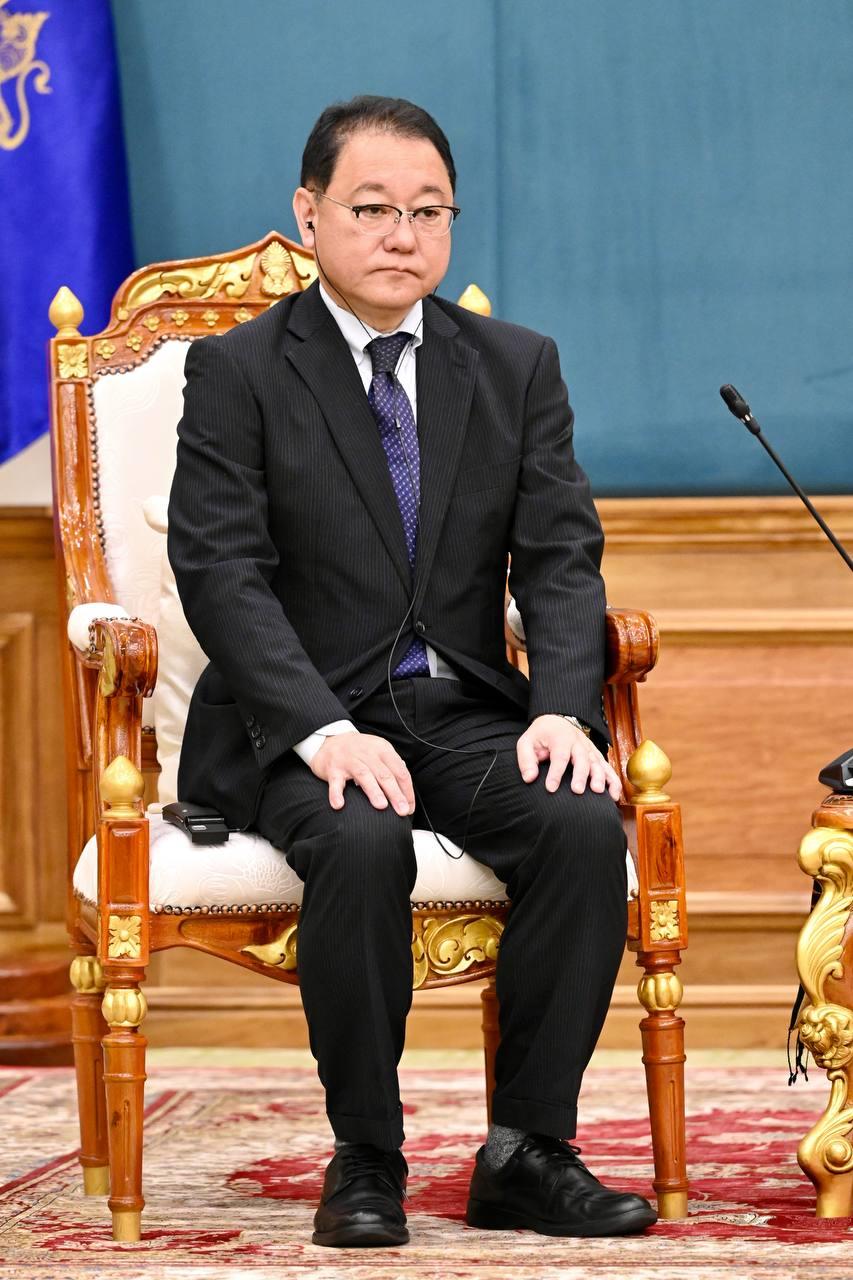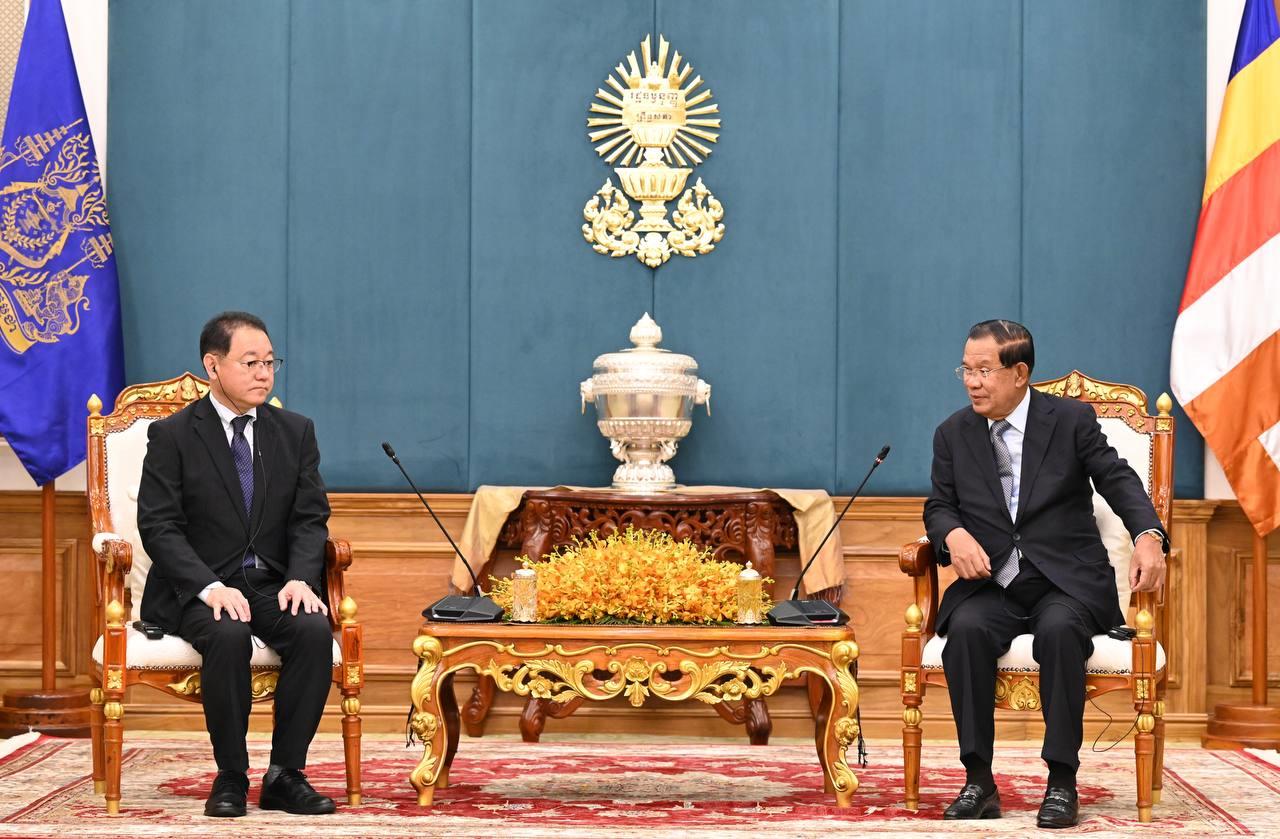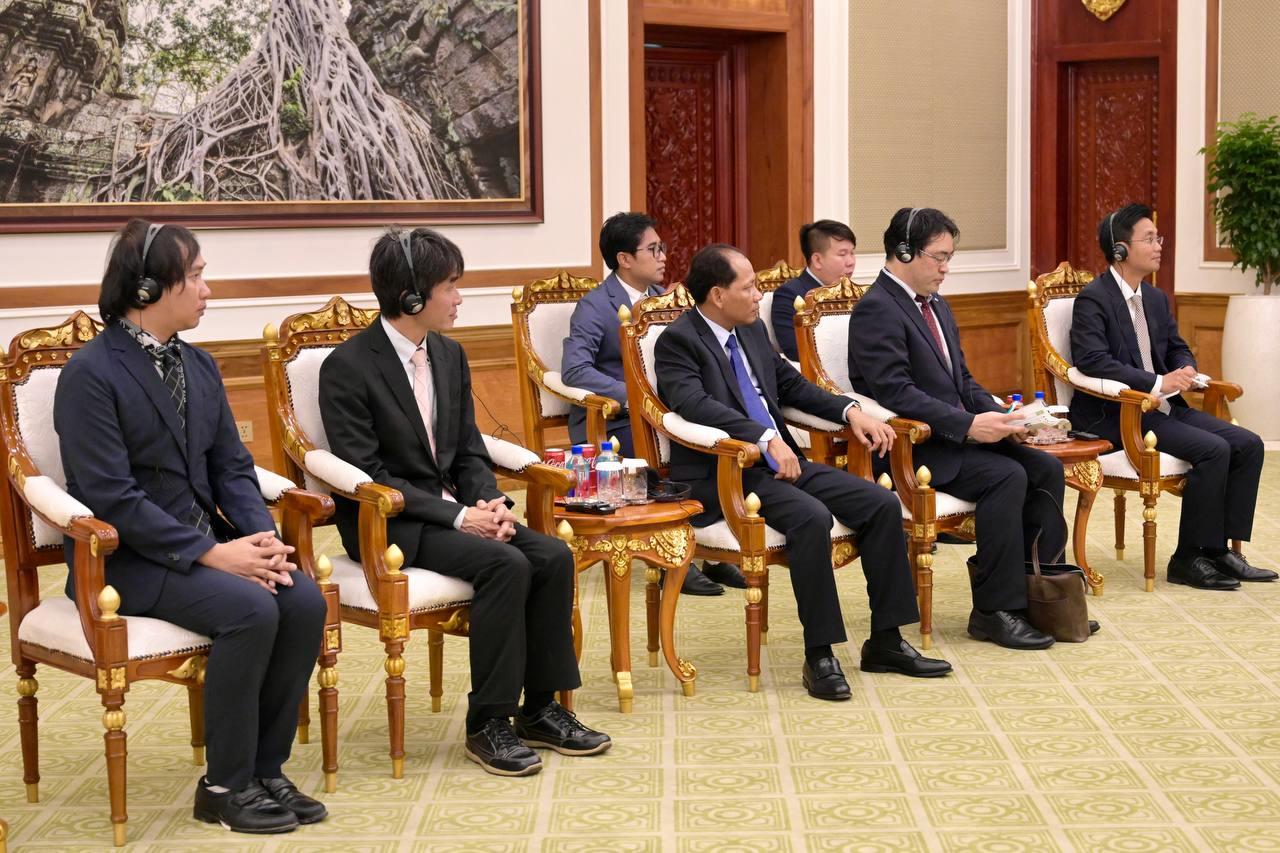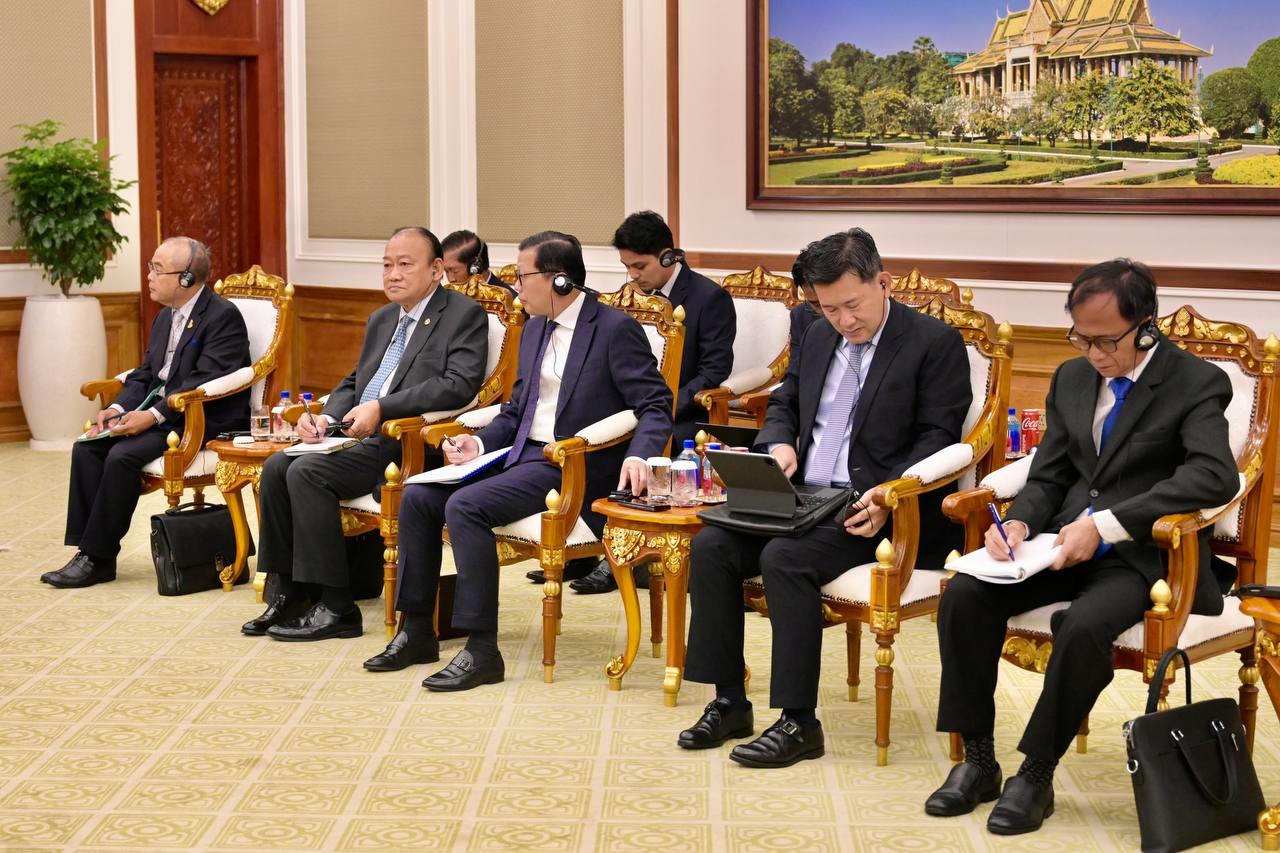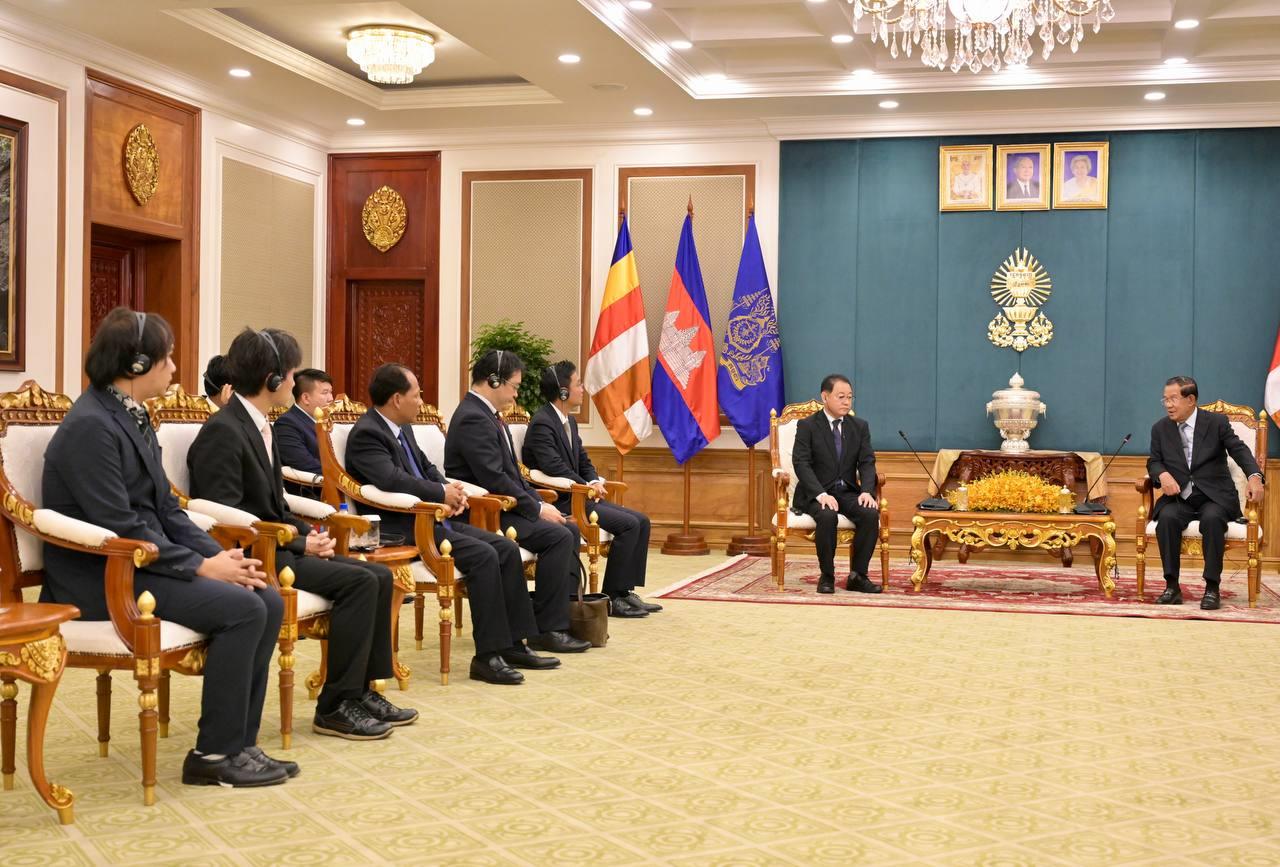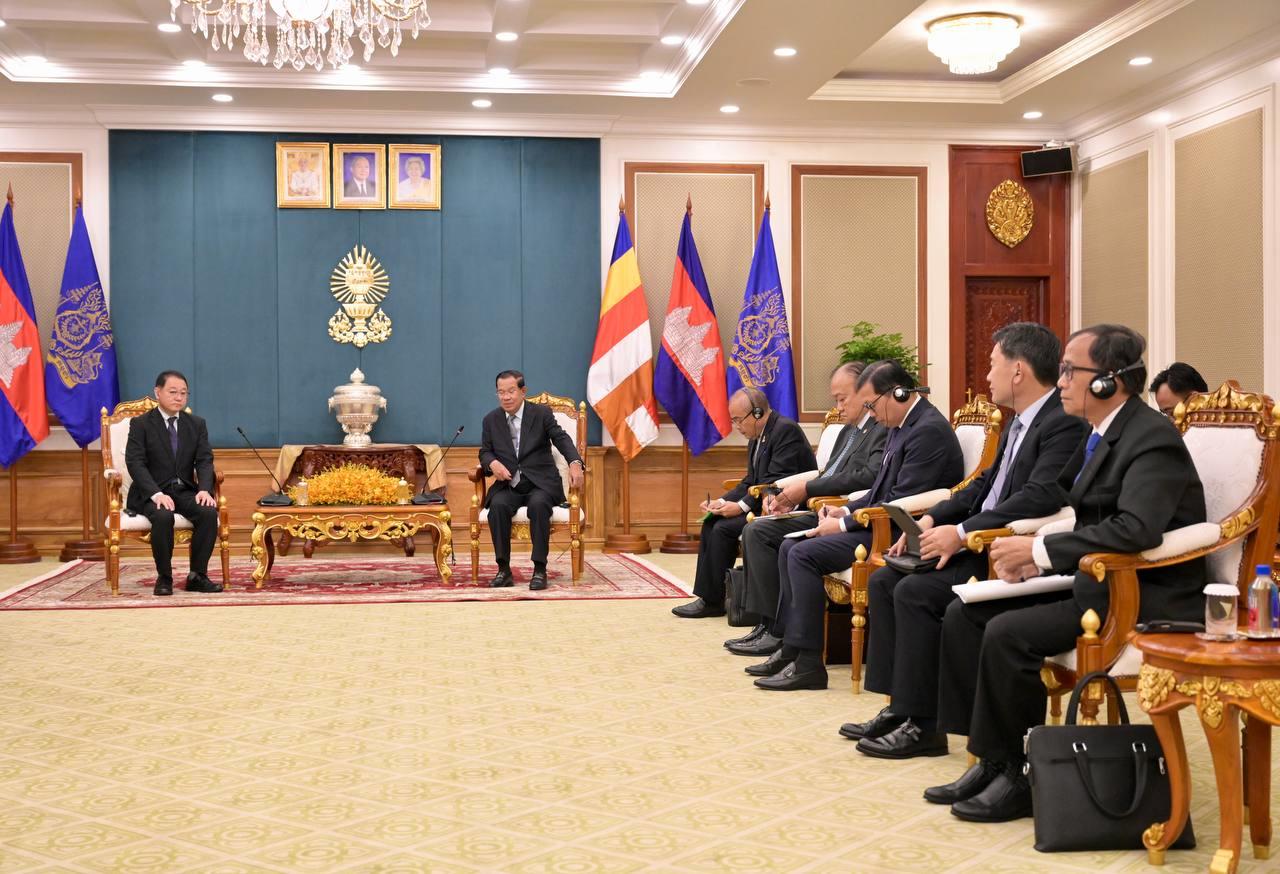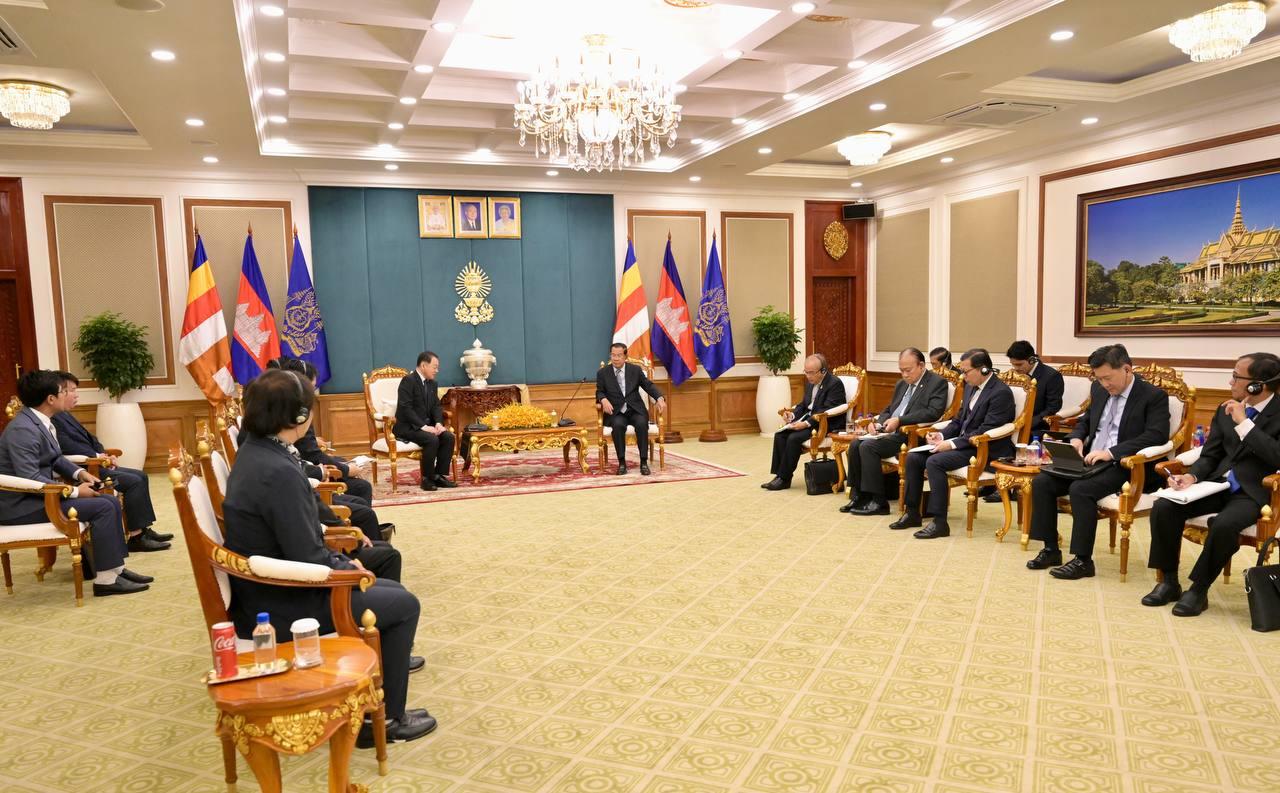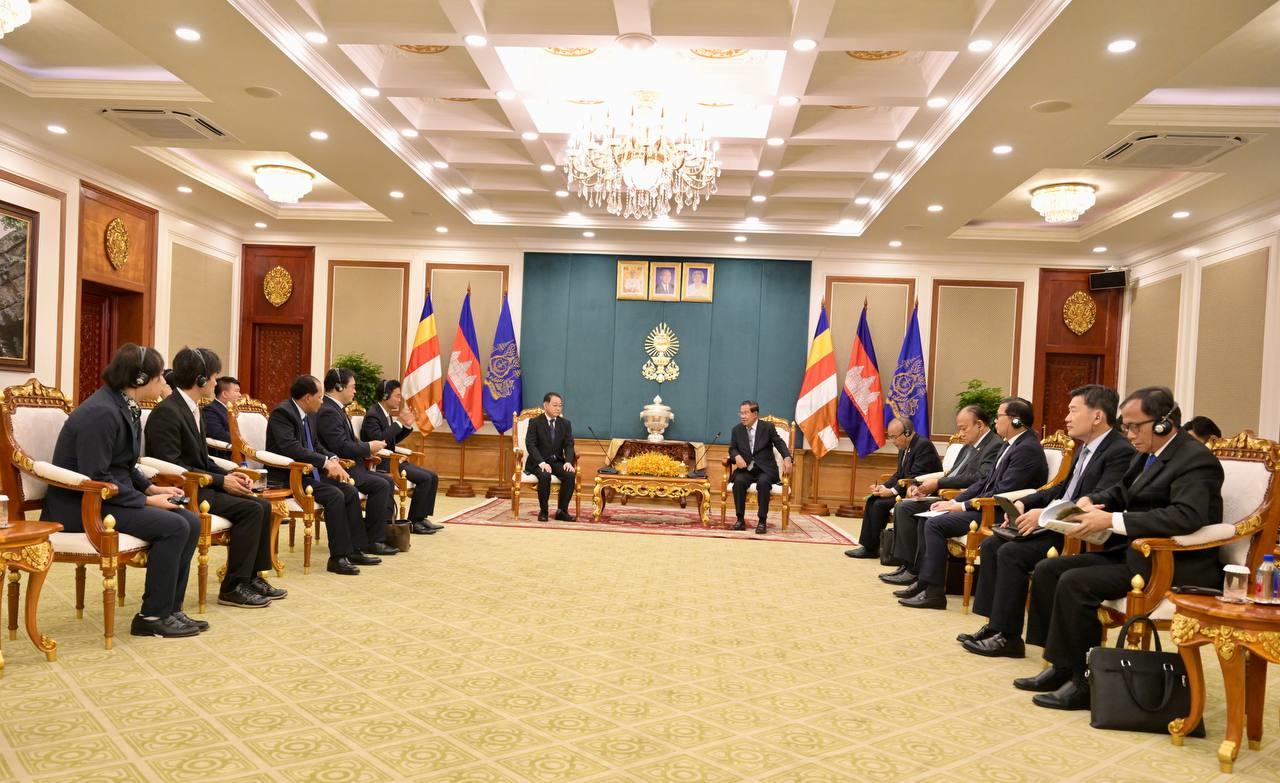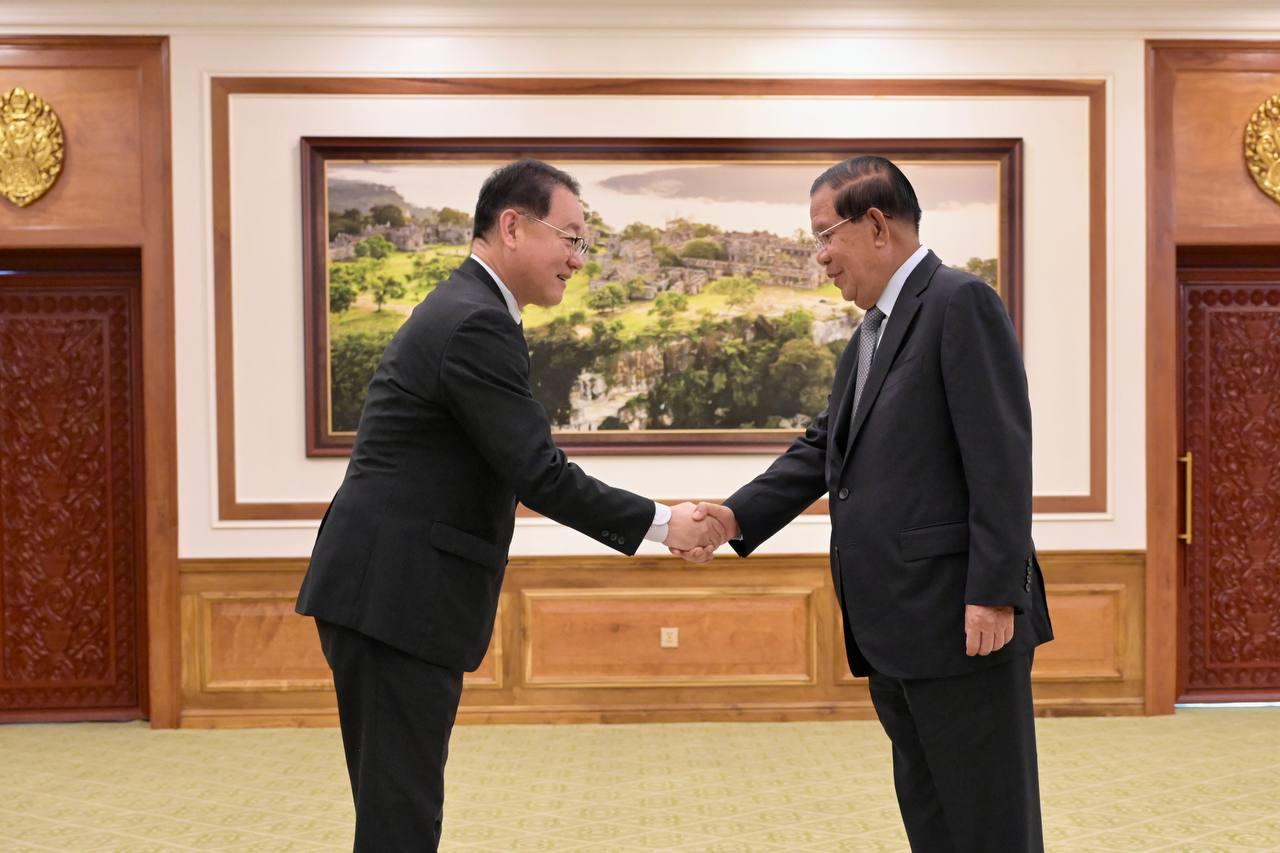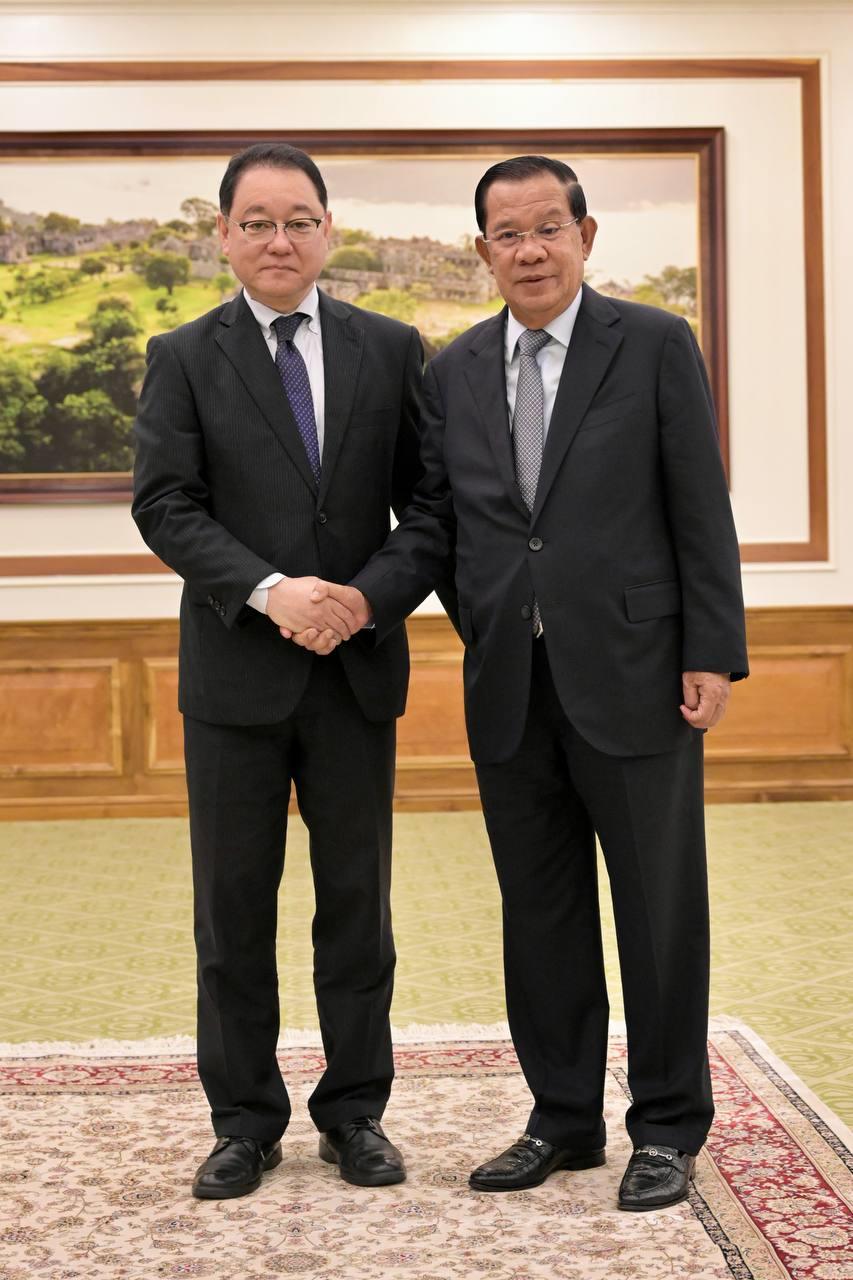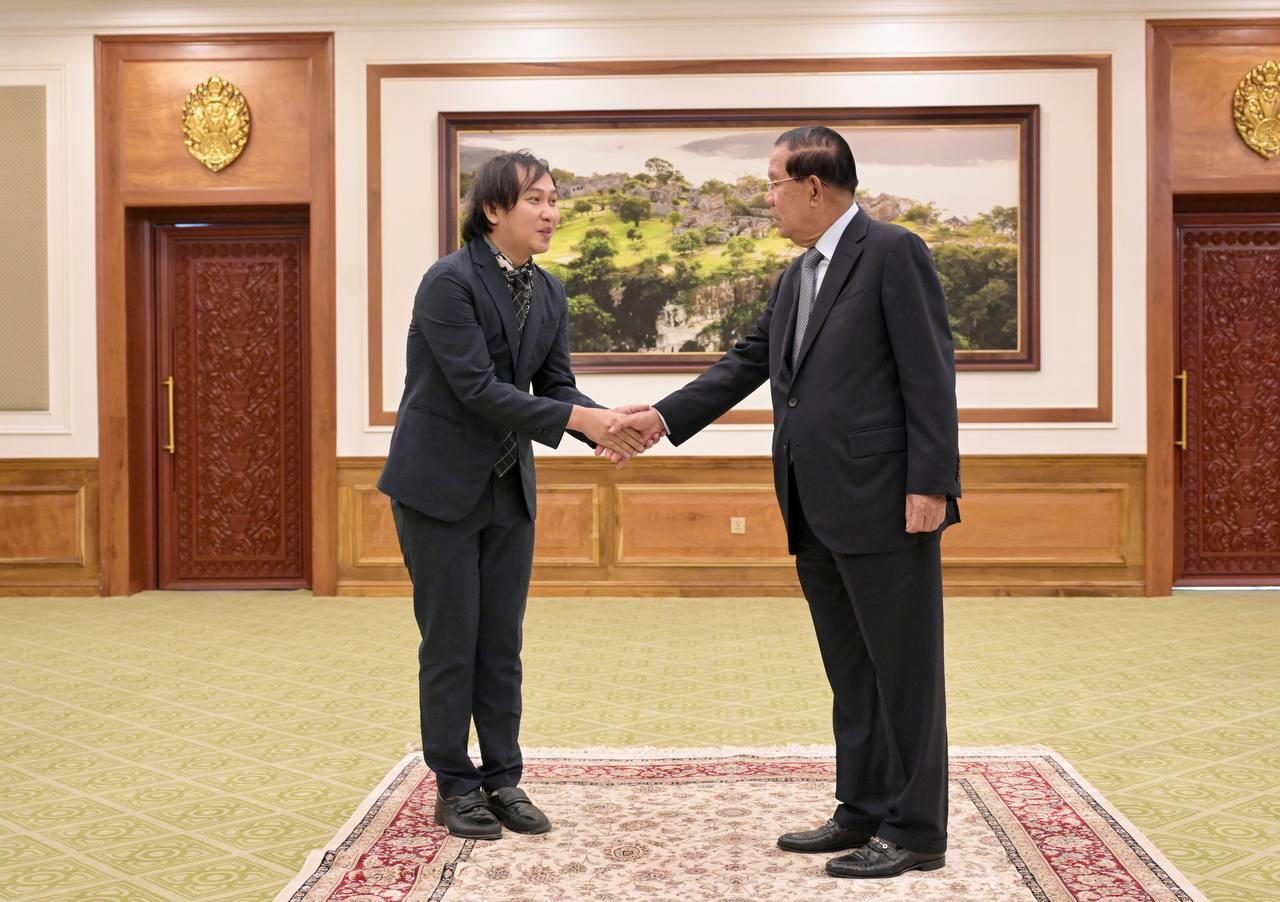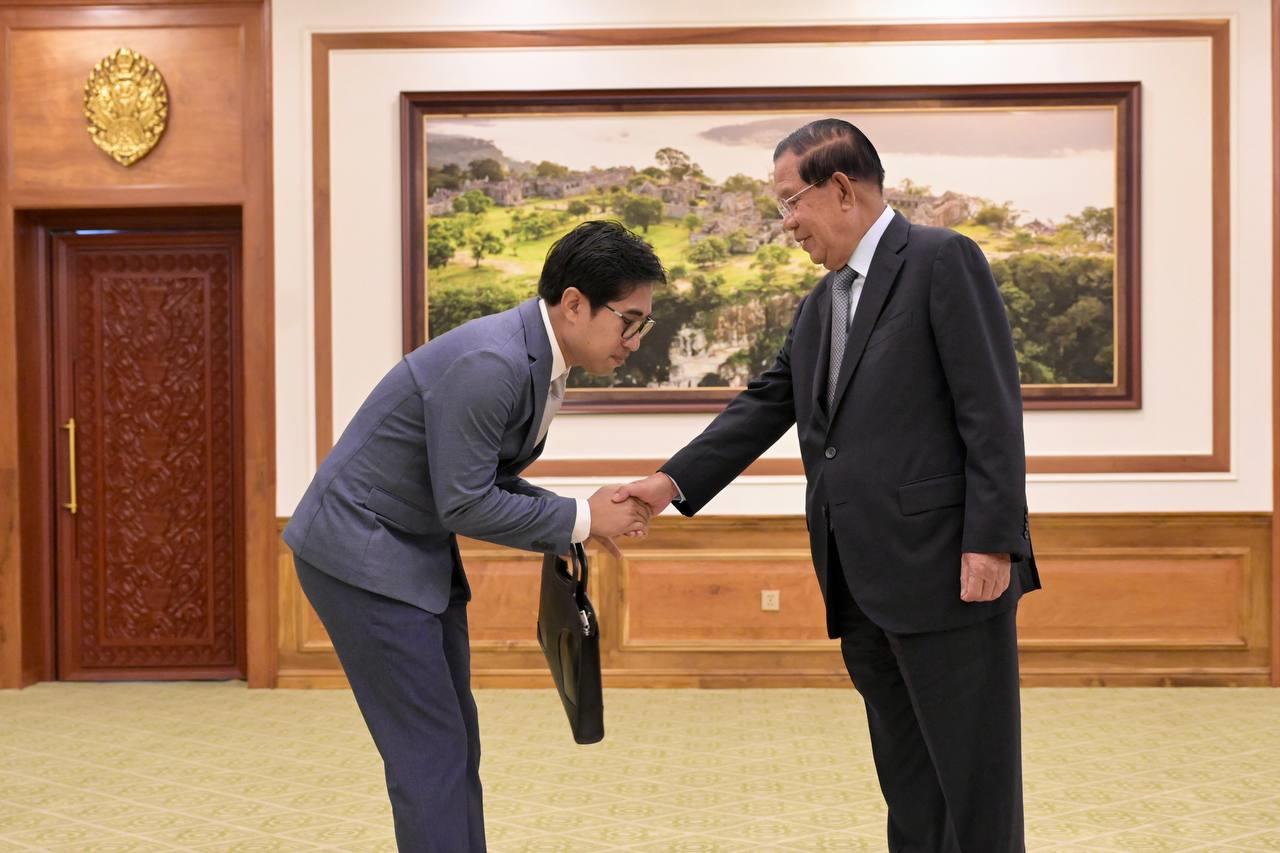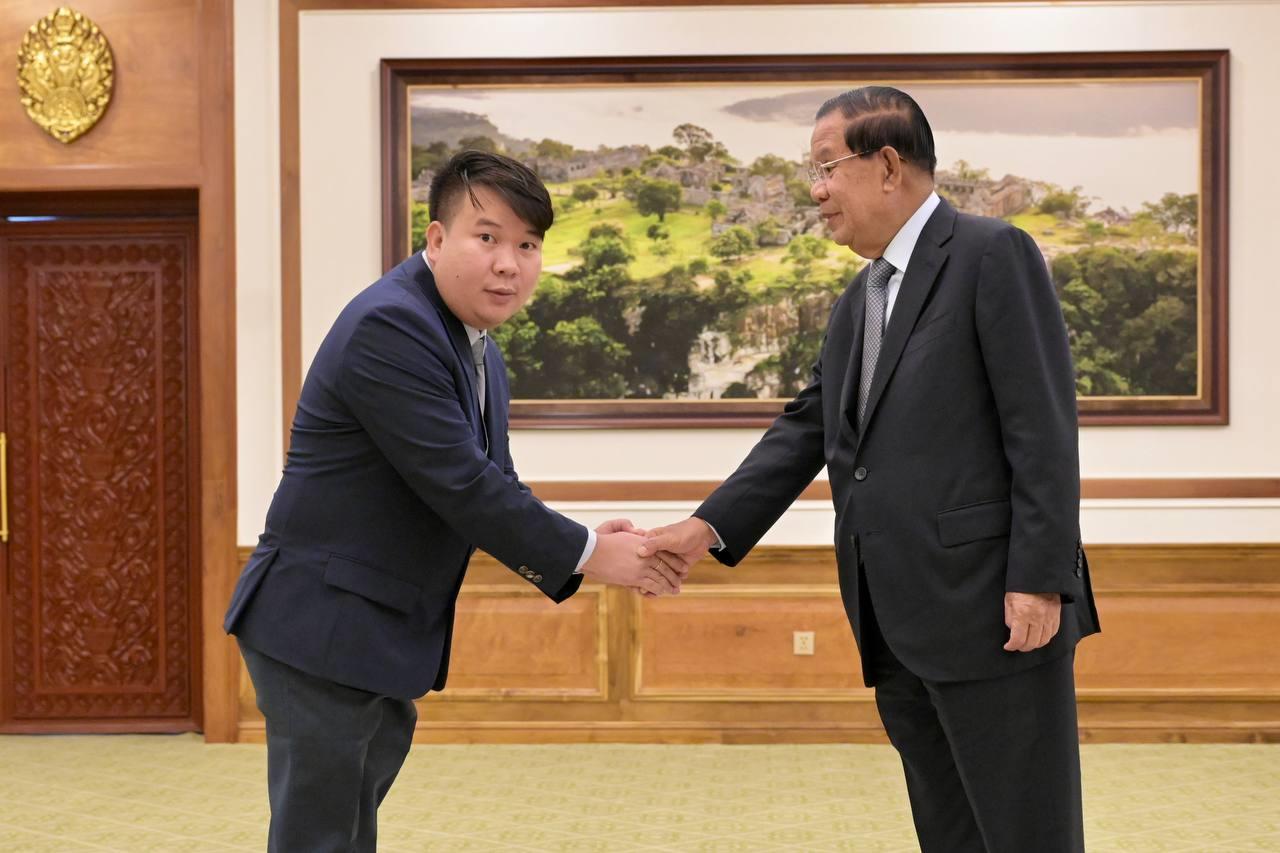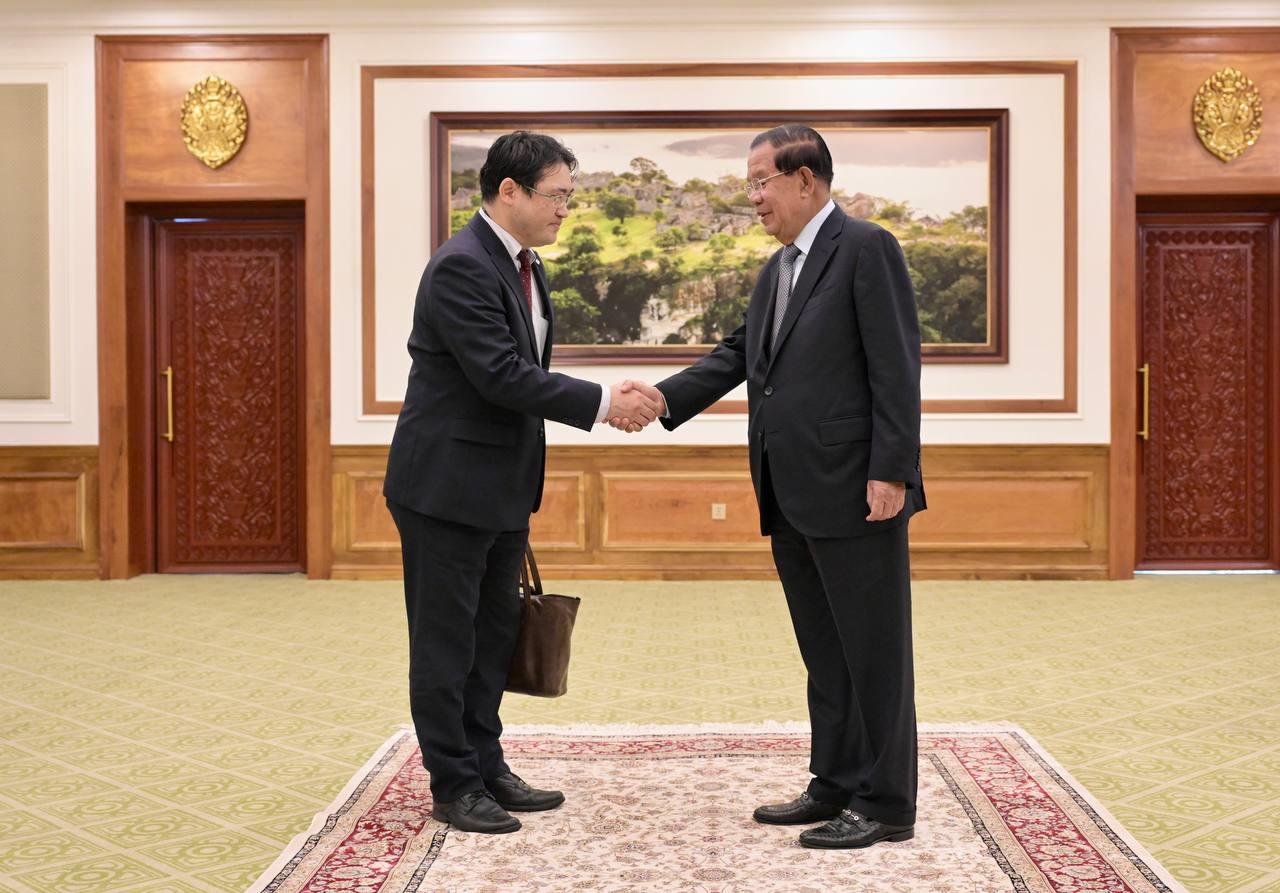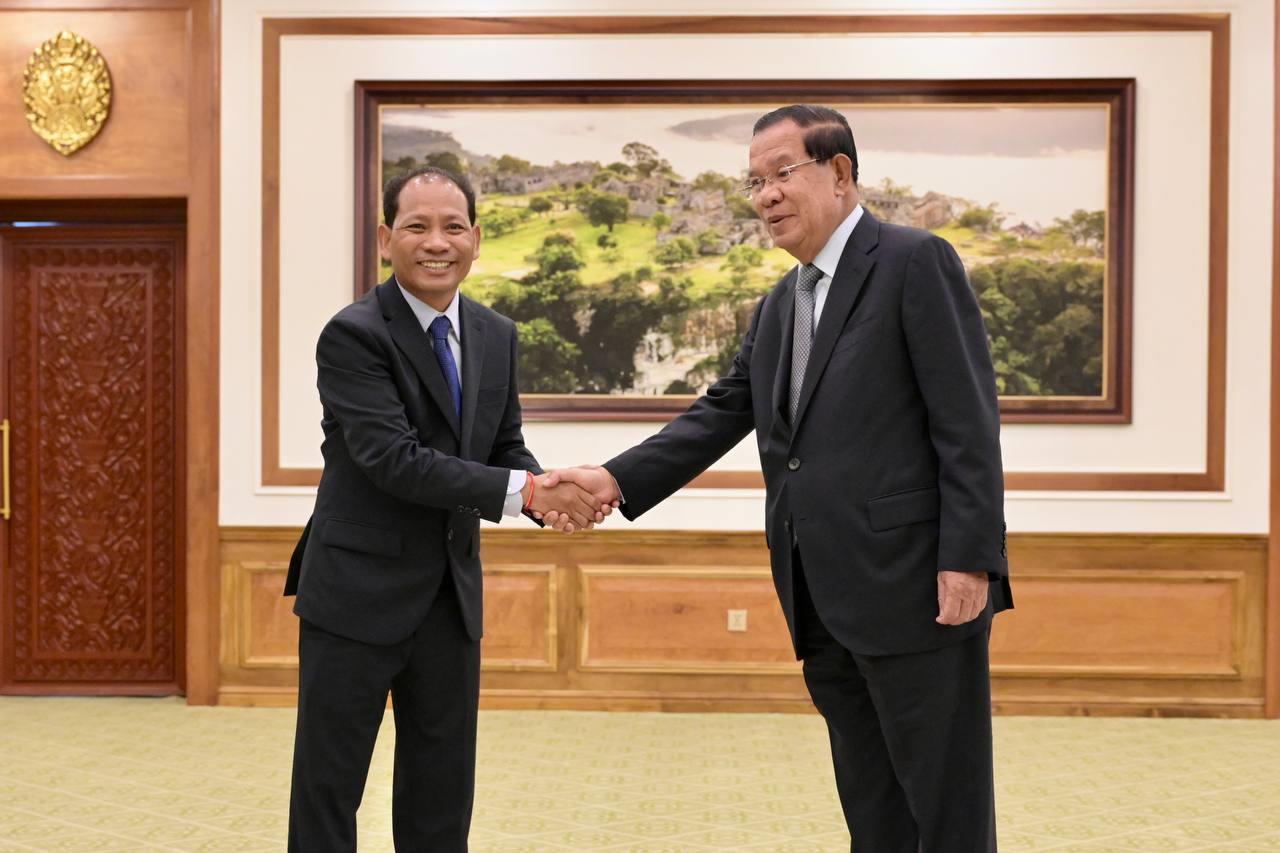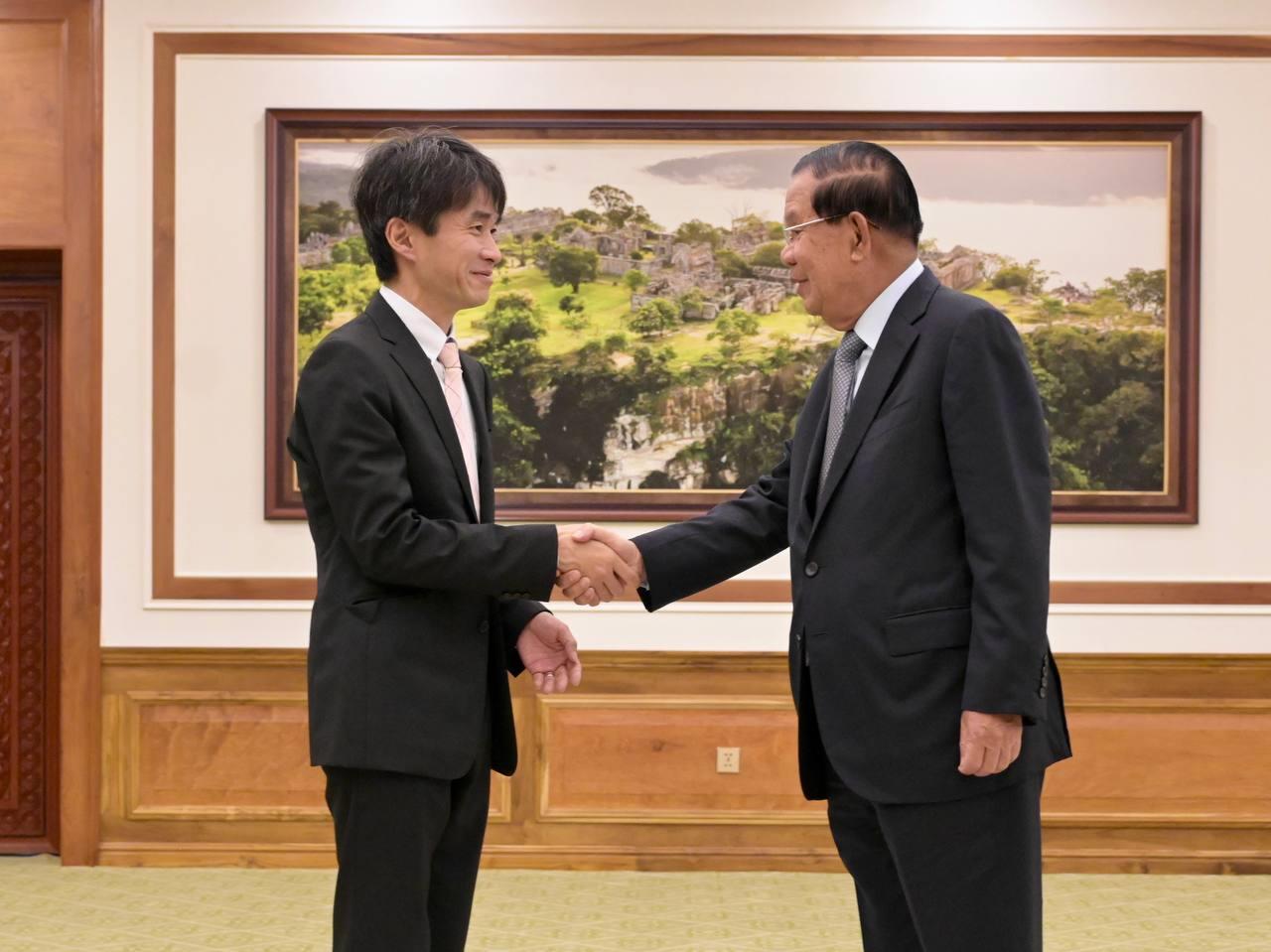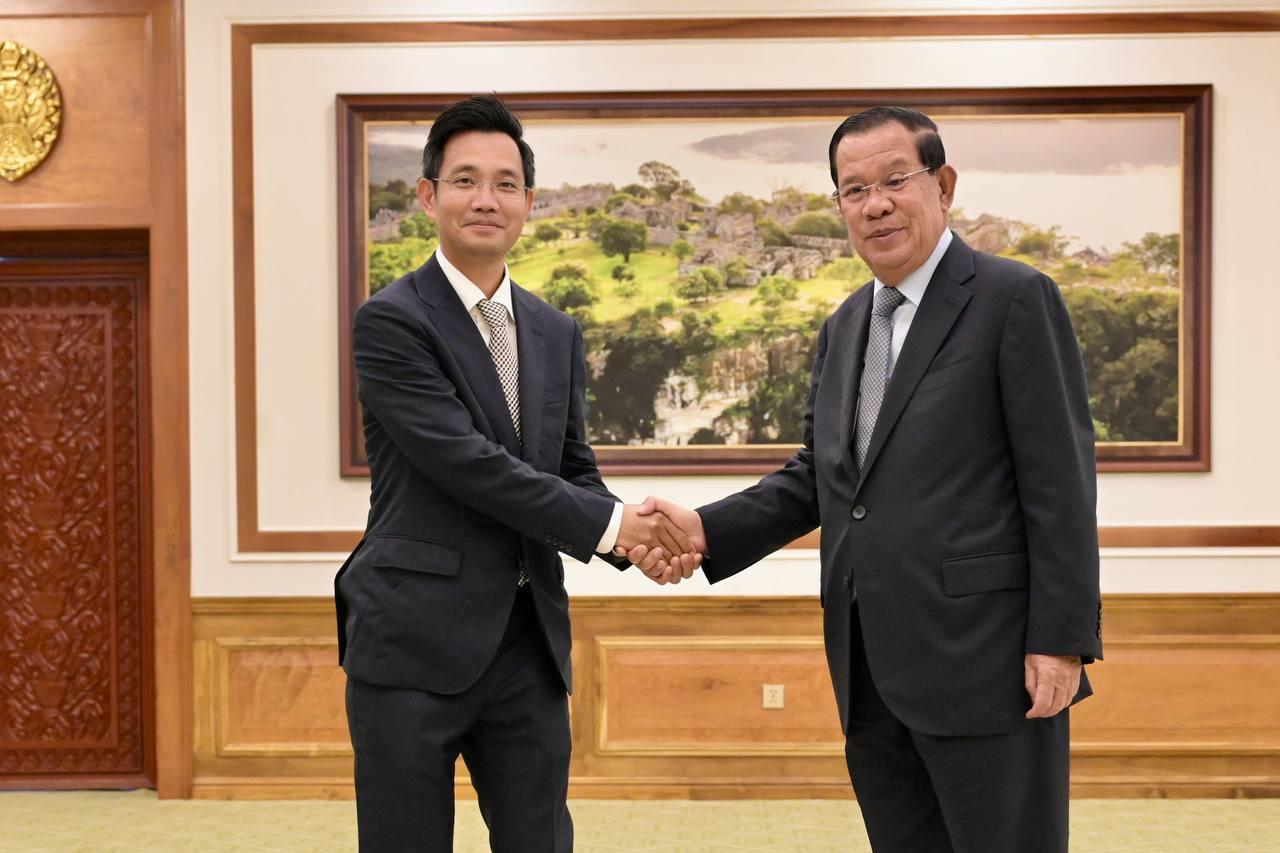(Phnom Penh): Akira Dodate, Chief Executive Officer (CEO) of Japan Tourism Corporation, has expressed strong interest in Cambodia’s agricultural sector, particularly in technology-integrated agriculture, a model he has successfully implemented in Japan.
Akira Dodate led a delegation to Cambodia to explore potential investment opportunities. His visit was facilitated by Hay Vanna, a former youth member of the opposition party residing in Japan, who was previously known for his frequent criticisms of Cambodian ruling government.
Samdech Techo Hun Sen, President of the Senate, received a courtesy call by the Japanese delegation on Wednesday (May 14) at the Senate.
During the meeting, Samdech Techo warmly welcomed Akira Dodate and his delegation and expressed appreciation for their visit to Cambodia.
Samdech Techo Hun Sen thanked the Japanese delegation for their interest in investing in and collaborating with Cambodia’s agricultural sector. He noted that their visit marked a promising step toward strengthening cooperation and exploring new investment opportunities that could contribute to Cambodia’s agricultural development.
Akira Dodate expressed his gratitude to Samdech Techo for granting the audience and reaffirmed his keen interest in Cambodia’s agriculture sector. He underlined the potential for cooperation by drawing on Japan’s experience in agricultural development.
He explained that Japan practices smart agriculture, which is highly technology-driven. He expressed his hope that his company could contribute by transferring knowledge and expertise to support the development of Cambodia’s human resources in this field.
He further expressed hope for future collaboration to include visits by Cambodian officials to Japan to gain firsthand experience and insights into Japanese agricultural practices, insights that could be adapted and applied in Cambodia. He also requested guidance from Samdech Techo on potential areas for investment in the country.
Samdech Techo Hun Sen shared the historical development of Cambodia’s agricultural sector from 1979 to the present. He recalled that, in the past, Cambodia had a fragile agricultural foundation and even suffered from food shortages. At that time, domestic production was only sufficient to meet local demand. However, through continuous reforms during his tenure as prime minister, Cambodia has evolved into a food-surplus country and is now capable of exporting agricultural products.
Samdech Techo noted that one of the key challenges still facing Cambodia’s agricultural sector is the lack of processing capacity. Despite increased production, much of Cambodia’s agricultural output is exported in raw form, resulting in missed opportunities for added value and economic growth.
Samdech Techo underlined that if Japanese companies are interested in investing in the agro-industry, particularly in processing raw agricultural products for export, it would greatly enhance Cambodia’s export potential and contribute to national revenue.
Samdech Techo cited rice and cashew nuts as examples of high-potential crops. Due to limited local processing facilities, these products are currently exported in unprocessed form. He encouraged Japanese investors to give serious consideration to opportunities in Cambodia’s agro-industry.
Samdech Techo Hun Sen also expressed hope for deeper technical cooperation between Japan and Cambodia, particularly with the Ministry of Agriculture, Forestry, and Fisheries, the lead institution in this sector.
Akira Dodate expressed his interest in the points raised by Samdech Techo. He stated that through this visit, his delegation would conduct further studies and engage in discussions with the Royal Government to identify specific sectors and types of production for potential investment, especially within agriculture. He also pledged to encourage more Japanese investors to consider Cambodia as a promising destination for agricultural investment.
=FRESH NEWS
